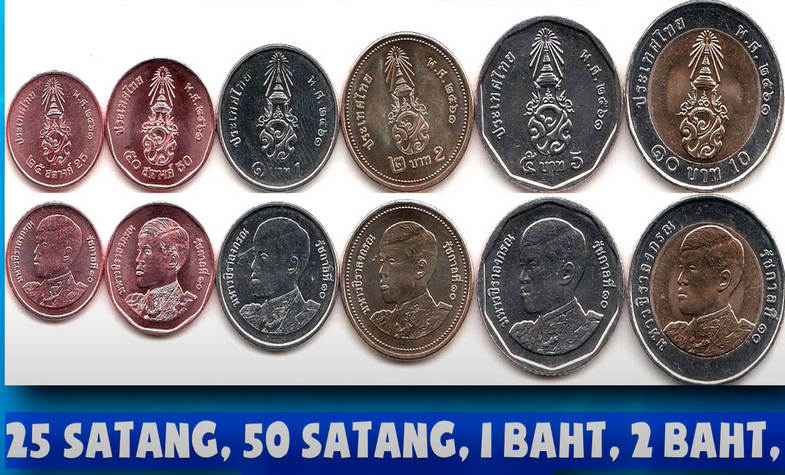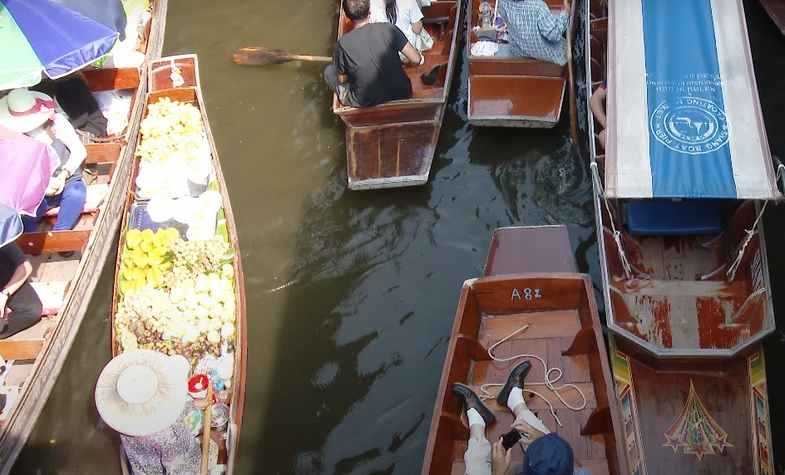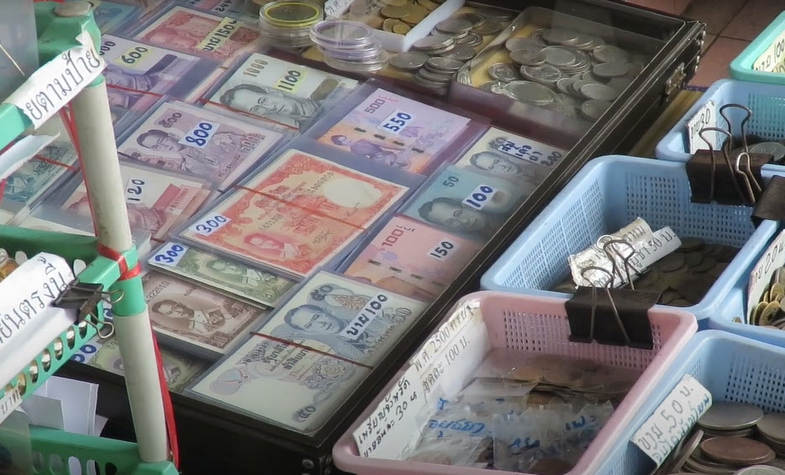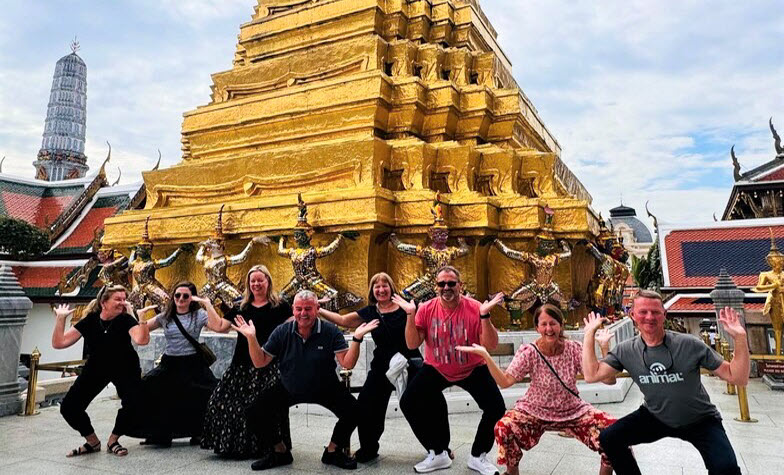Thailand Money Matters: Tips and Tricks for Expats on a Budget
When traveling to Thailand, it's essential to understand their currency. The official currency is the Thai Baht (THB), which is widely used for everything from shopping and dining to transportation. So, where can you exchange your money for the best rates? Is it more convenient to use cards or cash? Let's find out how to prepare your finances smartly for your trip to Thailand!
What's the currency in Thailand?
Thailand's official currency is the Thai Baht (THB), and it's divided into 100 satang. The currency system includes both coins and banknotes in various denominations. Coins come in 25 satang, 50 satang, 1 baht, 2 baht, 5 baht, and 10 baht, often used for public transportation or small purchases. Banknotes are more common, with 20, 50, 100, 500, and 1,000 baht notes, each with a distinct color for easy recognition. When you visit Thailand, it's a good idea to have some cash on hand, as many traditional markets and street food vendors still prefer baht over credit cards.

Tips for identifying genuine Thai currency
-
Check the paper quality and sharpness: Real Thai banknotes are printed on high-quality cotton paper, which is durable and has a slightly rough texture. Counterfeit notes often feel thinner, smoother, or unusually soft, and they may wrinkle easily.
-
Hold the banknote up to the light to see the watermark: When you hold a genuine note up to the light, you'll see a clear, detailed portrait of the King. Fake notes usually have blurry or indistinct watermarks, or no watermark at all.
-
Tilt the banknote to check the color-shifting ink: The denomination numbers on real banknotes will change color when you tilt them. Counterfeit notes may lack this effect, or the color change may be uneven.
-
Feel for the raised print: Genuine banknotes have raised print, such as the denomination numbers, Thai text, and the King's image, which you can feel when you touch them. Fake notes are often printed flat, lack raised details, or have smudged printing.

-
Examine the security thread and fluorescent ink: Real banknotes have a security thread embedded inside and will glow when exposed to UV light. Counterfeit notes often lack this thread or don't fluoresce correctly.
-
Exchange money at reputable places to avoid risks: Avoid exchanging money with individuals or unlicensed exchange booths. It's best to exchange money at banks or reputable exchange services like SuperRich or Vasu Exchange.
Should I use cash or card in Thailand?
Cash is essential when traveling in Thailand, especially when you're exploring traditional markets, street food stalls in Thailand or using public transportation like tuk-tuks and buses. Many small shops and local cafes prefer baht over cards. For convenience, it's best to exchange money at reputable currency exchange booths or withdraw cash from ATMs. Always carry small denominations like 20, 50, and 100 baht for easy payments when shopping or using services.

On the other hand, credit and debit cards are extremely useful for payments at shopping malls, upscale restaurants, hotels, and major tourist attractions. Popular cards like Visa, Mastercard, and American Express are widely accepted. However, some stores may charge a transaction fee of 2-3%, so it's a good idea to check beforehand. If you want to withdraw cash from ATMs, choose machines at major banks like Bangkok Bank or Krungthai Bank for better exchange rates.
Where can I exchange cash in Thailand?
-
International Airports: Currency exchange booths are available at airports like Suvarnabhumi and Don Mueang, but the exchange rates are usually lower.
-
Banks & Official Exchange Counters: Major banks like Bangkok Bank, Krungthai Bank, and SCB have exchange counters with good and safe exchange rates.
-
Shopping Malls: Some large shopping malls like MBK, Terminal 21, and CentralWorld have exchange counters with competitive rates.
-
Reputable Private Exchange Booths: Chains like SuperRich, Vasu Exchange, and SIA Money Exchange often have more attractive exchange rates than banks.
Safety tips for your belongings when visiting Thailand
-
Use anti-theft bags and wear them properly: Use crossbody bags, slash-proof backpacks, or money belts when traveling. Always wear your bag in front, and avoid wearing it loosely behind your back when visiting markets or crowded areas.
-
Don't carry too much cash: Only carry enough cash for the day, and keep the rest in your hotel. Use the in-room safe or hide your money in multiple locations to avoid losing everything if you get pickpocketed.

-
Be careful when taking taxis, tuk-tuks, and public transportation: Use Grab or Bolt to avoid being overcharged when taking taxis. When taking buses or the BTS, always keep your wallet and phone in a safe place, and avoid being careless.
-
Check the hotel door locks and use the safe: When checking in, check if the main door, windows, and safe are working properly. Don't leave money or passports on the table or bed, and always lock the door when you leave.
-
Avoid losing your phone and expensive devices: Don't leave your phone on the table when sitting in cafes or restaurants. Use a phone lanyard or hold your phone tightly when taking photos in crowded places.
-
Be careful of tourist scams: Avoid strangers offering cheap tours or money exchange with "favorable" rates. Don't lend your phone or help anyone hold their belongings to avoid being tricked.
Understanding Thailand's currency isn't just about money; it's key to truly enjoying your trip. Knowing the Thai Baht, how to exchange money, and payment methods will help you spend wisely, avoid risks, and make your shopping and dining experiences smoother. Plan your finances carefully to make your Thailand trip seamless and unforgettable!
Our tours you may like:
***Travel Authentic Asia Company is your best choice for discovering the beauty of Southeast Asia. Our experienced and knowledgeable travel advisors are committed to helping you create a tailor-made tour and extraordinary experiences in this majestic region.
If you're looking for an authentic cultural experience, do not hesitate to contact Travel Authentic Asia to choose a Vietnam tour, Southeast Asia tour package or to customize your own style tour to South East Asia.

